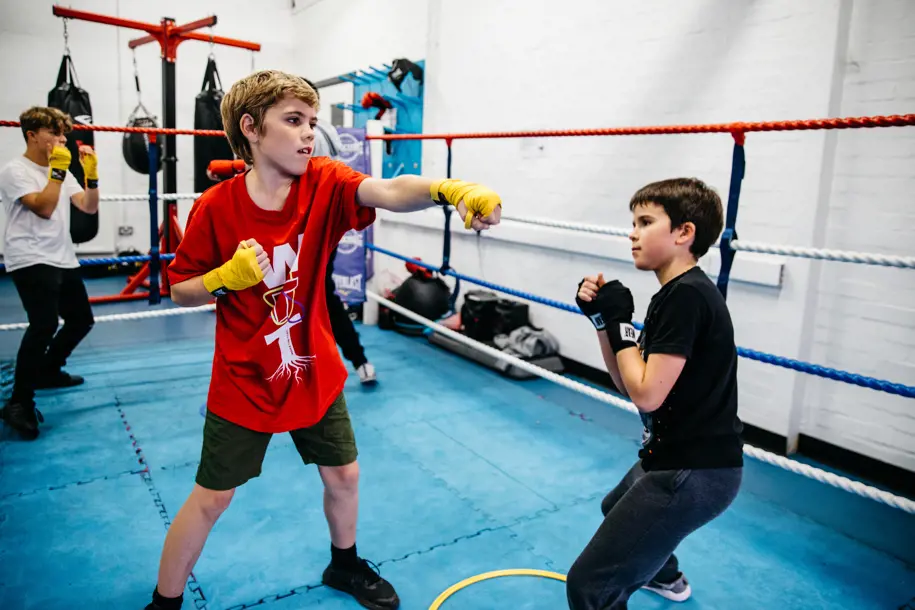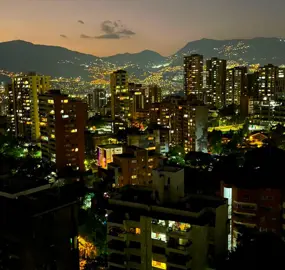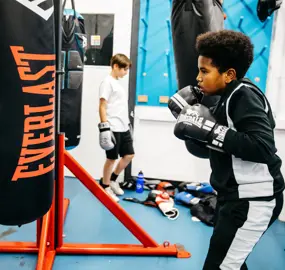The price of poverty

Empire Fighting Chance was born to fight the brutal effects of poverty and inequality on the lives of young people. Although our vision is a society where our programmes are not required anymore, the reality of poverty in the UK means this is a long way off.
There are 4.2 million children living in poverty in the UK – that’s 29 per cent of under-18s. Even those with parents who are in work are not shielded from poverty, with 71 per cent of children growing up in poverty living in a household where at least one person works.
Some detached observers may argue that society will always include those who are less well-off due to structures which are outside of our control, so we must accept that poverty will exist. But the increasing rate of child poverty is not just a fact of life, it is in part the result of policy decisions by successive governments. As the Child Poverty Action Group (CPAG) shows, in the past, child poverty levels in the UK have been significantly lower than they are today. Reductions in child poverty achieved in the early 2000s have been reversed and the rate is currently growing to record levels.
And now, new research from CPAG calculates the rising cost of child poverty to society. The total cost has risen from £25 billion in 2008 to £39 billion in 2023, and forecasts predict a rise to more than £40 billion by 2027. Around £12 billion of this is the reduction in the future prosperity of those affected as a result of earning less, £5 billion is the loss to the Treasury in the tax had they earned more, almost £2 billion is how much more it will cost to support them when they are unemployed, and over £20 billion is the current public expenditure on services addressing the consequences of child poverty.
The human cost
Calculating the true societal cost of child poverty is incredibly difficult. While we can assign a monetary value to the long-term risk of unemployment, low productivity and increased demand for services, the physical, emotional, and personal implications of growing up poor aren’t so easily quantified.
At our gym and in the community, we’ve seen first-hand the powerful effect that growing up in poverty can have on young people – it’s what we fight every day. The young people we work with are usually experiencing poor physical and mental health as the result of trauma and toxic conditions. Many display destructive or risky behaviours as a way of coping or as a result of their situation, such as criminality, gang membership, unemployment, substance misuse, or behaving in a way which risks exclusion from school. The toll this takes on their emotional health is huge.
In fact, there is a proven relationship between poverty and poor mental health. In 2010, The Marmot Review found that children and adults living in households in the lowest 20% income bracket are two to three times more likely to develop mental health problems than those in the highest. Among adults, it is likely that poor mental health is both a cause and an effect of poverty. But in 2015 the Centre for Mental Health found that young people in the lowest income bracket are 4.5 times more likely to experience severe mental health problems than those in the highest.
We cannot ignore the unequal distribution of poverty either. The Health Foundation reports that people of Black ethnicity are more than twice as likely to be in persistent poverty than white people – and this appears to be entrenched. According to the Joseph Rowntree Foundation, poverty rates for the Black/African/Caribbean/Black British ethnic group have largely stayed just over 40% for the last 25 years. Ethnic minorities are also more likely to have higher rates of in-work poverty and child poverty.
This is the human cost of child poverty. It is a matter of social justice, and one we have a moral duty to address if we are committed to fighting injustice.
Young people in poverty can face powerful barriers to obtaining mainstream support with mental health and behavioural issues, resulting in issues escalating until they reach a point of personal crisis. This is often the point at which they are referred to Empire. But despite the challenges they face, we have never met a young person without talents to draw upon to change their life.
Our boxing programmes knock down the barriers that young people experiencing poverty can face when accessing support. The sport has the power to break down negative stigmas associated with traditional support systems for young people. And our team of coaches and therapists, many of whom have lived experience of adverse childhood experiences, build a trusted relationship with young people to help them drop their guard and open up to us.

A poverty of ideas?
The data shows that a rise in child poverty has in part been caused by austerity policies and a reduced social security safety net since 2010. With child poverty rising at record rates in the past few years, action is needed now to stem the tide and prevent soaring costs from being incurred for both the Treasury and society.
Solutions do exist. For instance, the CPAG recommends scrapping the two-child limit on benefits, removing the benefit cap to support the most vulnerable families, increasing child benefit by £20 per week, and introducing universal free school meals. Although the immediate cost to the public purse for such initiatives is significant, the longer-term impact of raising children out of poverty and improving their life changes is huge. With a better safety net, families and communities can be stronger, alleviating demand for services such as ours.
But beyond benefits reform, what can be done to reduce poverty or lessen its effects?
At Empire, as well as transforming the lives of individual young people every day, we are committed to building stronger communities that support young people to thrive. Our recent visit to Medellin showed us that we can be doing more to tackle the effects of deprivation, such as youth violence, on the communities we serve.
That’s why we’re developing a greater understanding of young people’s needs in the context of changes to public services, community relations and the economy. We are building productive partnerships with other organisations and strengthening our advocacy for the communities we serve by shining a light on the challenges faced by young people in Bristol and what needs to change.
In the near future, we want to be hosting activities and services provided by other organisations at our gym, in order to bring opportunities closer to our local community which they may struggle to access otherwise.
All of this is about empowering the communities we work with, to enable young people to find strength and support locally to overcome the challenges that come with growing up poor.
But decision-makers must also recognise that investing in stronger communities can also reduce the risk of families falling into poverty in the first place. A study in Proceedings of the National Academy of Sciences in 2017 found that low-income individuals who trust their communities make better long-term financial decisions that can lift them out of poverty. It found that interventions which bridged the gap between communities and public services led to greater trust within a community and that people are more likely to access support when needed from both the government and from others.
Conclusion
Demand for Empire Fighting Chance’s programmes is at a record high, with the average waiting time for sessions recently reaching six months. We regularly read stories in referrals of young people facing trauma which no one should have to go through.
With rising child poverty and cuts to youth support services across the UK, we are increasingly a last resort for young people with nowhere else to go.
It’s vital that action is taken now, both locally and nationally, to tame the spiralling economic and personal cost of child poverty as a matter of social justice. We cannot afford to kick the can down the road any longer.
Author: Ellie Milone, Communications and Advocacy Manager
Join our fight for young lives in Bristol and beyond.
If your organisation is interested in working with Empire Fighting Chance to support young people and their communities, please get in touch by emailing Ellie Milone at [email protected]
Or you can make a donation to Empire Fighting Chance today.




